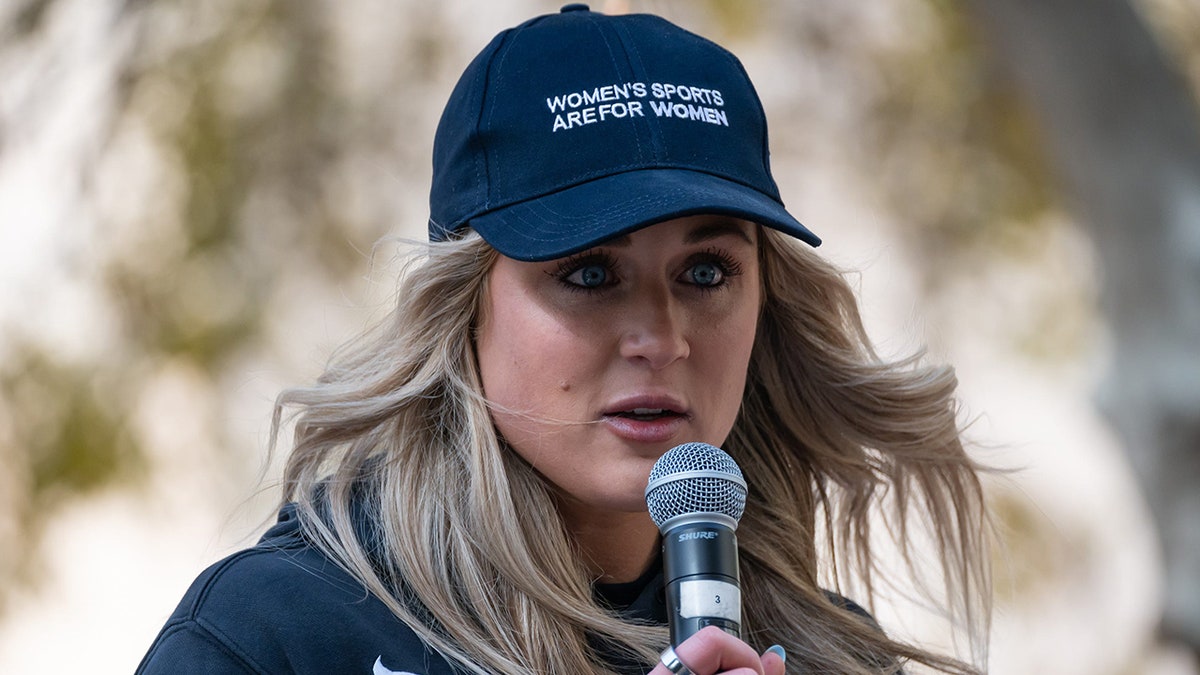
Empowering Conversations: The Intersection of Transgender Rights and Women's Sports
In the ever-evolving landscape of sports, the conversation surrounding transgender athletes competing in women’s categories has ignited passionate debates across the nation. As society grapples with the complexities of inclusivity and fairness, prominent athletes like Simone Biles and Riley Gaines have emerged as key voices, each representing vastly different perspectives in this ongoing dialogue.

Simone Biles, a revered gymnast celebrated for her athletic prowess and advocacy, has recently weighed in on the issue, emphasizing the importance of both competitive equity and inclusivity in sports. Biles has stated, "Individual athletes — especially kids — should never be the focus of criticism of a flawed system they have no control over." Her comments reveal a deep understanding of the emotional weight that comes with being a transgender athlete navigating a world often marked by discrimination and misunderstanding.
Conversely, Riley Gaines, a former swimmer at the University of Kentucky, has emerged as a vocal advocate for maintaining a level playing field in women’s competitions. Having competed against transgender athlete Lia Thomas at the 2022 NCAA Championships, Gaines’s experience has shaped her staunch belief that biological males retain advantages in women's sports. She has articulated the need for fairness, echoing sentiments shared by other advocates, including tennis legend Martina Navratilova. Navratilova has been a prominent figure in the discussion, calling for restrictions on transgender women competing in women's sports post-male puberty, highlighting the concerns many female athletes have regarding the implications of such policies.
This debate raises critical questions about the integrity of women's sports and the values that have historically governed them. As discussions continue to unfold, stakeholders must navigate this complex terrain with sensitivity, ensuring that inclusivity does not overshadow the principles of fairness and competitive integrity that are vital to sports.
The Heart of the Debate
At the core of this discussion lies a fundamental question: what is fair? The notion of fairness in sports has traditionally been rooted in the understanding of sex-based categories, designed to ensure that competition is equitable. However, as societal norms shift and evolve, the definition of fairness is being challenged.
In a recent commentary, a contributor to the Orlando Sentinel argued, "If we are going to have an honest, productive conversation about transgender athletes in organized sports, it has to begin with one basic truth: Biological males — even those who transition — do retain athletic advantages over biological females." This perspective has sparked significant debate, as many argue that acknowledging these advantages should not equate to dismissing the rights and identities of transgender athletes.
The conversation has garnered attention from various corners of the political and social landscape, with polls indicating that a substantial percentage of the population, including a significant number of Democrats, believe it is unfair for transgender athletes to compete in women’s sports. This sentiment reflects a growing concern over the implications these policies have on the future of women's athletics, where female athletes have fought tirelessly for equitable treatment and opportunities.

Gaines’s voice adds a personal touch to this narrative. After tying with Thomas at the NCAA Championships, she expressed her frustration about the perceived advantages that transgender athletes may have in competitive settings. "Women's sports can't be used as an excuse for girls to center the feelings and validation of men and boys," she stated, calling for a re-examination of policies that define gender categories in sports.
Diverging Views and Common Ground
Both Biles and Gaines share a commitment to ensuring that sports remain inclusive while simultaneously advocating for fairness. Biles has taken a nuanced approach, emphasizing the need for sports organizations to create rules that support inclusion without compromising competitive integrity. "We all want a future for sport that is fair, inclusive, and respectful," she remarked in a recent statement, highlighting the delicate balance that must be struck between advocating for transgender rights and protecting women’s sports.
Yet, while both athletes are committed to their causes, their methods and focuses diverge sharply. Biles advocates for a more inclusive framework that recognizes the rights of all athletes, while Gaines champions a return to strict sex-based categories to preserve fairness. This fundamental difference illustrates the complexity of the issue, as both perspectives hold valid points that resonate with different segments of society.
As this debate unfolds, the voices of athletes like Biles and Gaines will continue to shape the conversation. Their experiences and insights are pivotal in crafting policies that respect the rights of every athlete while ensuring that women’s sports retain their integrity.
Looking Ahead
The future of women’s sports hinges on the ability of governing bodies to navigate these debates thoughtfully and inclusively. Striking a balance between fairness and inclusivity is no small feat, but it is essential for the growth and evolution of athletics as a whole. As Biles poignantly stated, “We need to support individual athletes while ensuring fair competition.”
The challenge remains for sports organizations and policymakers to strike a balance that honors the rights of transgender athletes while ensuring that female athletes can compete on a level playing field.
In conclusion, the dialogue surrounding transgender athletes is not merely about policy; it is reflective of broader societal values and the future we envision for female athletes. By fostering open and honest conversations, the sports community can work towards achieving a fair and inclusive environment that empowers all athletes, regardless of gender identity.
As we navigate these waters, the commitment to engaging in constructive dialogue will be crucial. The stakes are high, and the outcome of these discussions will shape the future of women’s sports for generations to come.
